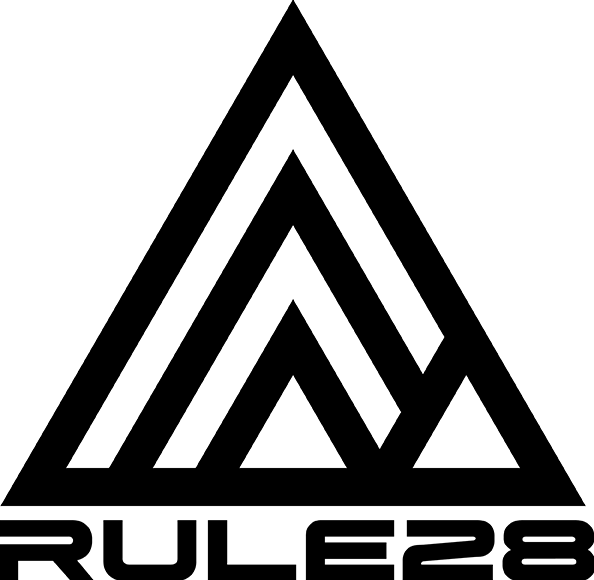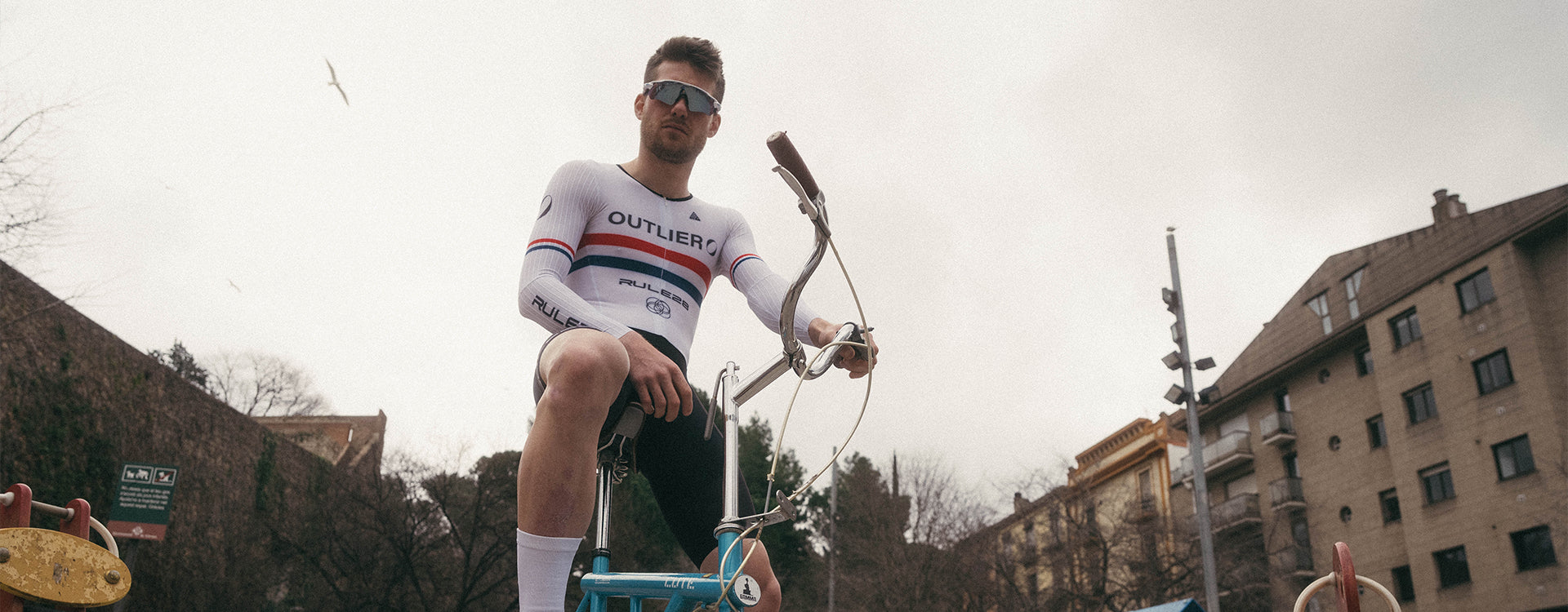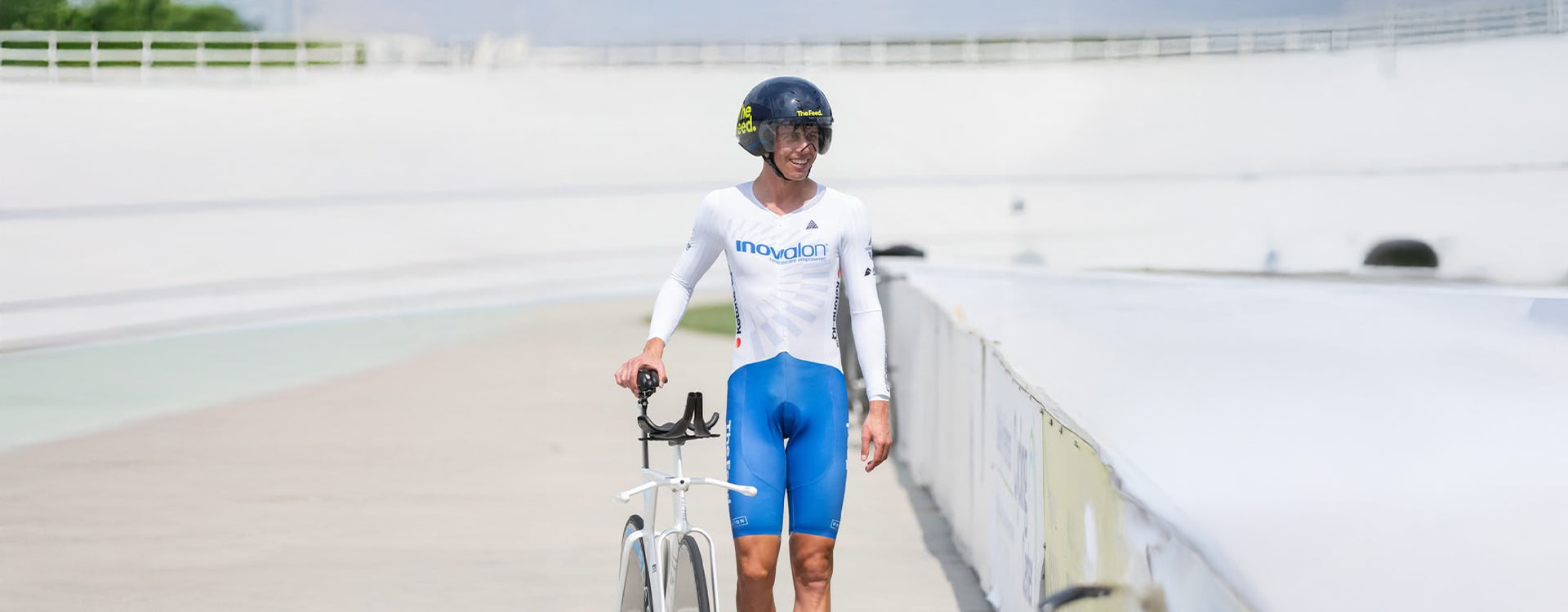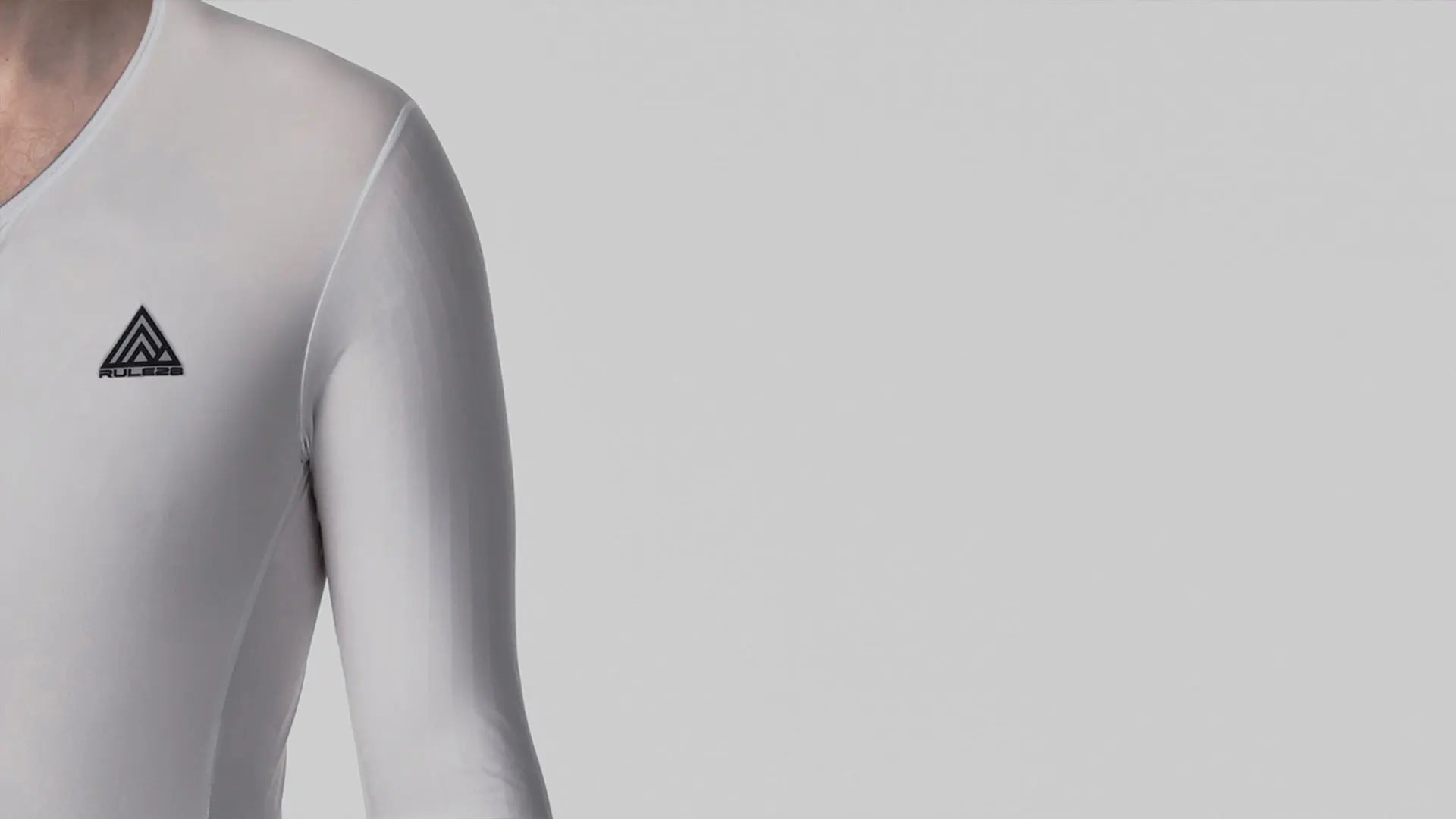Psychologist Dr. Josephine Perry outlines how to properly formulate your season's goals.
Goal setting: Practice makes progress – so what do we practice?
If ever there is a phrase to make a sport psychologist twitch it is that one that has rolled off the tongue of many a coach and teacher… Practice makes Perfect. Firstly, it doesn’t. There is no perfect and in assuming there is we don’t only limit what we do (because we stick rigorously to what we believe we should do) but we feel miserable what the reality doesn’t meet our expectations. Secondly, it really focuses on outcomes and outcomes are usually beyond your control so you beat yourself up for not doing something that was impossible in the first place. Finally, it is the worst thing you could say to an athlete with any element of perfectionism within their personality as it suggests you have to do every single element religiously in order to succeed. We totally don’t – we have to keep a balance and spend most of our time on the elements which will make the biggest difference to performance. This, for those who are not professional athletes and don’t have unlimited time, is the intelligent way to train.
As we have rejected ‘practice makes perfect’ we can instead focus on practice makes progress. Focusing on your own progress is what gets you furthest towards your goals and does so in a way that reduces your keenness to compare ourselves with others. You can focus on progress through Goal Setting.
At its simplest Goal Setting is deciding what you want to achieve and working backwards to create a plan to make it happen. The research is incredibly strong that when you follow a clear goal setting process you are better able to maintain motivation, focus on processes over outcome, maintain attention on your own needs (not ruminating about others) and feel confident you have prepared as best you can. Setting goals in a structured way can help you change any behaviours which are currently holding you back and help you to focus on all the ways that will improve your performance. This structured approach means you get to consider every element required for you to succeed because it turns your intentions into actions and is a key foundation to set the tone, direction and structure for everything else you work on.
There are three types of goals that all cyclists need; outcome, performance and process. Outcome and performance goals are great for helping to motivate us and process goals are brilliant for helping us to progress, perform with less stress, and do better.
Outcome goals
Outcome goals are the glamourous exciting ones and often involve the place or the result you would like to get in a competition. They don’t have to be results focused though as they could involve competing in new places (such as qualifying for something oversees), using your riding as a way of helping others (like mentoring, coaching or fundraising) or developing a really difficult skill. Often though these outcome goals involve other people so will be really motivating but not that controllable.
It is important to only have one outcome goal as multiple outcome goals means you risk failing all of them. I regularly see cyclists saying they want to achieve a race podium AND to enjoy riding more. They see enjoyment from being able to spend time with their friends at training and joking about during sessions but this isn’t going to support consistent improvement or better performances. Both are valid outcome goals but can’t be achieved at the same time. Once the outcome goal is chosen you move onto your performance goals.
Performance Goals
Performance goals stem from your outcome goal but are more specific and controllable as often they are based on achieving times or finishes and focus only on you. They act as staging posts of the outcome goal and show us if we are likely to reach it. Our performances feed into our outcomes goal so if we achieve our performance goals we would be likely to achieve our outcome goal too. But even if we don’t, we will still have mastered much more of our sport and become a better rider.
Process Goals
Finally comes the process goals. These are drawn from our performance goals and specify the behaviours, actions, strategies and tactics we need to do in training or racing in order to make each performance goal happen. For a sprinter this might be to spend time in the wind tunnel, do a weekly track session and build power in their legs through regular S&C work. For a sportive rider this might involve mental skills work to stay motivated on long, easy rides or completing the Sunday ride every week to build up group riding abilities. Deciding on the processes and repeating them over and over again stops them being choices and makes them habits which builds up your cycling abilities and gives you confidence.
All your goals must be positive; in Sport Psychology we call them ‘approach goals’ so rather than trying NOT to do something we work towards DOING it. Approach goals have been found to be more effective as they help us to see progress.
A really good way to identify what some of these process goals should be is to do a Performance Profile [LINK TO TIER 1 AND 2 SHEET ON THIS] which will give you four or five key actions and behaviours that will make the biggest difference to your future performance.
How To Apply These Principles To Your Own Goals
Goal Setting can be used at any time but most athletes do it in January (as part of their New year excitement) or just after they have entered a scary race or event. This sheet will take you through the three stages:
Outcome Goal
The first step is to set your outcome goal. It needs to be:
- Stretching - Enough to make you focus and work really hard so you don’t get lazy.
- Realistic - So you don’t feel out of your depth and give up.
- Exciting – Something that gets your heart racing and feels worth your investment.
- Positive – As goals are more effective if we are able to work towards something rather than try to avoid it.
- Purposeful – It could be a result but it could also be environmental (to compete in new places), fulfilment (using your riding to help others) or development (focusing on long term skill mastery).
- Around 4-6 months away.
Once you have this outcome goal write in at the top of your goal pyramid.
Performance Goals
Performance goals give you staging posts to see if you are on track towards reaching your outcome goal. We usually have 2-4 of these performance goals and they will be a mixture of the specific times, distances or skills required. It is important they are specific, have a deadline and measurable so you can’t make excuses.
Process Goals
Process goals are the magical bit of goal setting. They create the building blocks of the pyramid and they are what makes the difference. Process goals feed directly into performance goals and are the behaviours, actions, strategies and tactics that you will need in place if they are to achieve each performance. These are all actions you should be able to control (with the right support and work ethic) and will make up a significant part of your training plan.
Using Goal Setting
Once you have set up your pyramid the ideal mindset is to put the outcome and performance goals to the back of your mind (as their presence can cause your internal threat system to trigger with stress or worry) and really focus on completing your process goals properly and regularly. When you follow them you should get to see regular progression and feel a buzz of achievement and momentum as you get closer to the time of your outcome goal.
Download A Goal Setting Template Here






Share:
Motivation